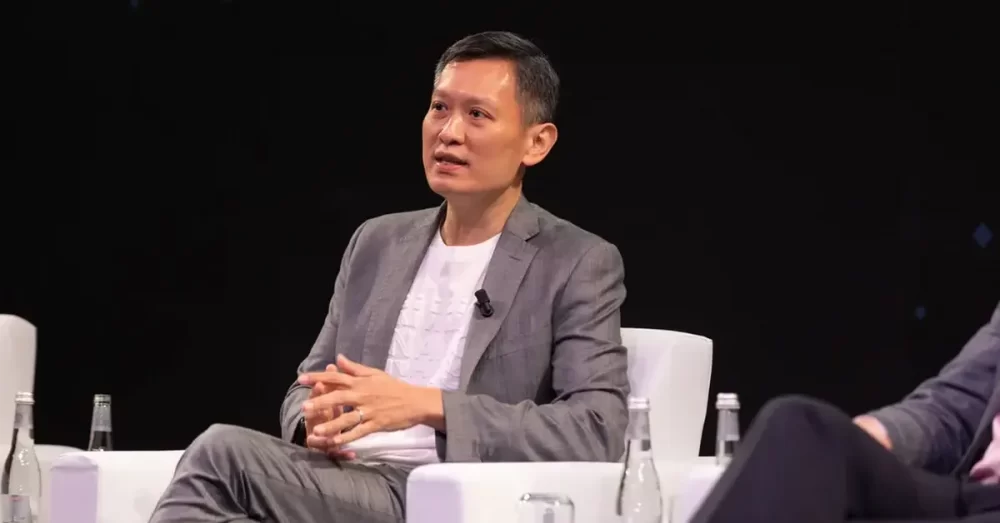The appointment of Richard Teng to oversee Binance’s regional markets outside the U.S. has positioned the one-time Abu Dhabi regulator as the most likely successor to Changpeng Zhou, who founded the world’s largest crypto exchange in 2017.
The enhanced role follows a report last month that Zhou, commonly known as CZ, is looking to reduce his ownership of Binance.US, the firm’s American arm – a move that’s seen as something of an appeasement to U.S. regulators.
Teng’s knowledge and experience as a regulator will come to bear in his new role overseeing Asia, Europe, the Middle East and North Africa as the exchange, often targeted by authorities, attempts to draw a line under mounting enforcement actions related to conduct during crypto’s early years. Prior to heading up the Financial Services Regulatory Authority at Abu Dhabi Global Market (ADGM), he was chief regulatory officer of Singapore Exchange (SGX) and spent 13 years with the Monetary Authority of Singapore (MAS).
In an interview, Teng sidestepped the idea that he’s being groomed to take the reins from the 46-year-old CEO.
“To speculate on such things would be premature,” Teng, 52, told CoinDesk. “Let me just stress we have a very strong management team in place and many strong leaders looking after different parts of business. I’m just happy to be part of that and to try and support the company’s agenda and aspirations.”
His new role, he pointed out, is not even a promotion, “just expanded responsibility to help [CZ] look at certain things.”
But it’s worth remembering that CZ himself said the firm had a succession plan in place when he hired Teng back in August 2021. Teng initially joined Binance as CEO of the Singapore business, and quickly rose through the ranks during a turbulent period in the digital assets sector.
A former Binance employee, who asked to remain anonymous, told CoinDesk via direct message: “Both senior leadership and regulators have discussed behind closed doors that Richard Teng is the only leader that could step into CZ’s shoes and both continue building the company in his vision while helping bridge the existing gap between the industry and regulators.”
Teng believes Binance is “open and candid about things in the past,” pointing out the firm is still very young. Binance, which will soon celebrate its sixth birthday, started as a technology firm, Teng said, at a point in time when most jurisdictions had no regulations or proper guidance. Today, it has some 750 compliance officers, more than any other exchange, he added.
“If you look at the past 18 to 24 months, the company has pivoted very strongly in terms of the direction of travel on compliance,” Teng said. “But we acknowledge there are past issues. We want to solve all those policy issues in a responsible manner with the respective parties and move on to demonstrate that we are a new organization.”
Meanwhile, crypto continues to evolve, both in its technological development and in terms of tectonic shifts at a level of jurisdictions. In that global context, it could be argued that a clampdown from U.S. regulators will see crypto hubs sprout and flourish elsewhere.
The ambition to set up a dedicated crypto regulatory agency is demonstrated in Dubai, for example, Teng said. Europe is also striding ahead with its Markets in Crypto Assets (MiCA) regulatory framework, strengthening France’s strategy of trying to attract crypto companies.
“If you look at what Paris is doing, it is very conducive for businesses. Not only not ourselves, a number of crypto players are trying to use Paris as their base for expansion within Europe,” Teng said.
He also said Binance is “excited” about Hong Kong opening up to crypto trading and offering licenses to firms. Asked if Binance is underway setting up shop in the territory, he said: “That’s an announcement we will make when the time comes.”







